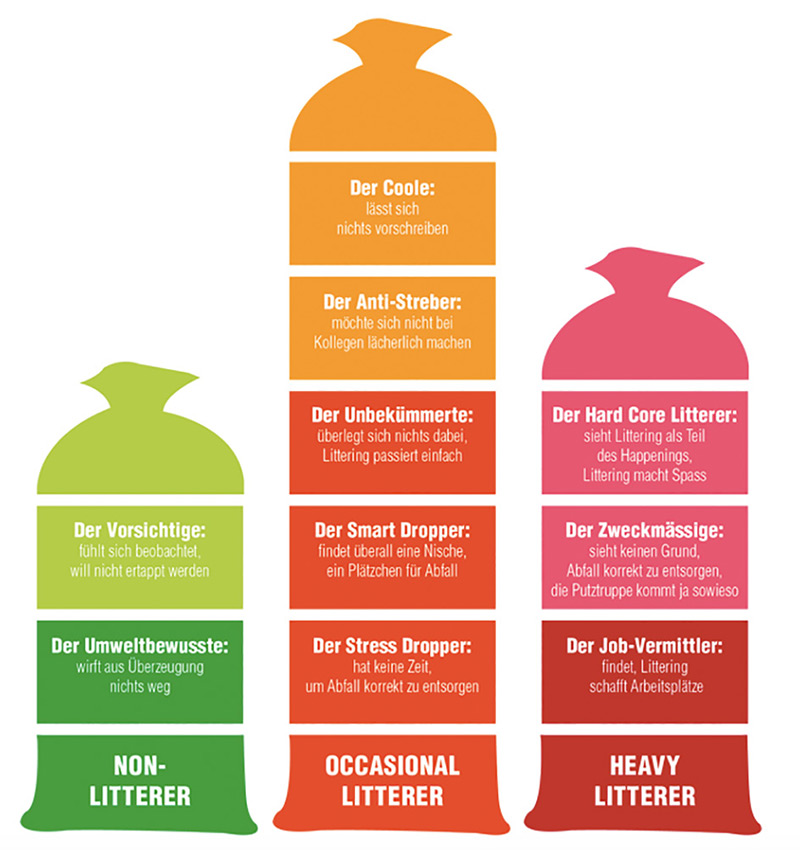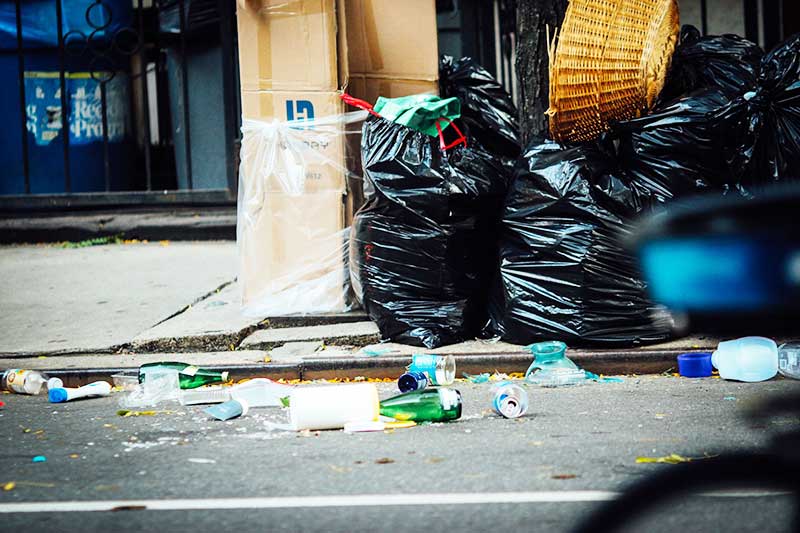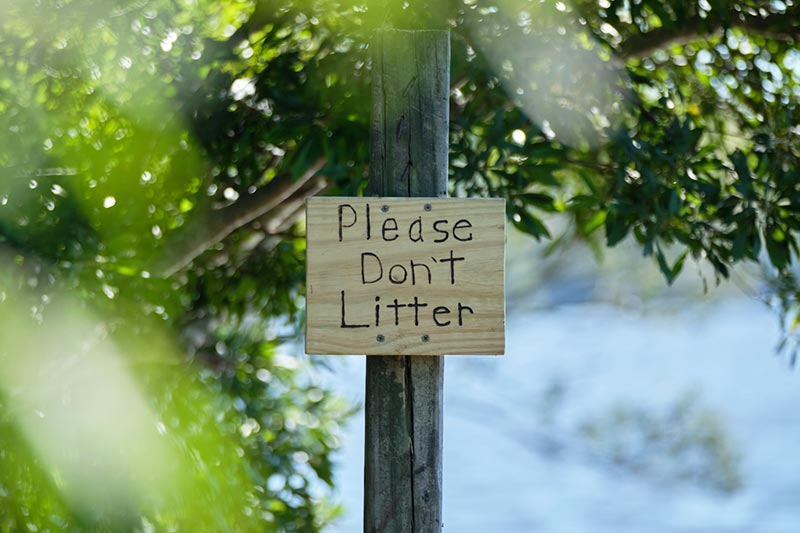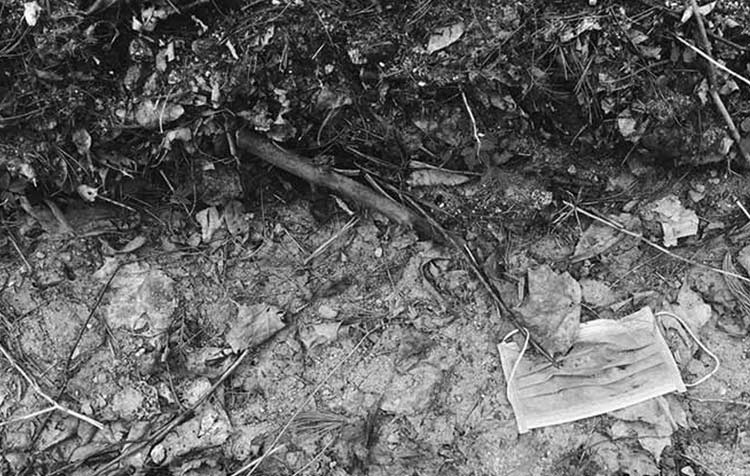What is littering? If you're asking yourself this question right now, you've come to the right place! Who is familiar with the Plastic waste in the environment inevitably hears about the term "littering. Translated from English, it means nothing other than littering. However, littering does not mean the littering by mankind per se, but rather the action of an individual to simply leave his own garbage in public places or to throw it away carelessly.
In this article I want to give you everything you need to know about littering. From the definition, to statistics, locations, psychological reasons, typical items and the consequences for people, animals and nature. I'll also show you what you can easily do about littering. Let's go!
Here's another quick table of contents for you:
What is littering?
Littering is the increasingly common habit of people to litter their homes. Carelessly throwing away or leaving litter in public areasinstead of disposing of it in the waste garbage cans provided for this purpose or, if necessary, taking it with you.
The embedded video already describes the problem pretty well. However, it is important to add that littering is NOT the illegal disposal of household or industrial waste in order to avoid having to pay disposal costs. Rather, littering refers to the careless actions or inactions of people in dealing with trash when they are in public spaces.
Facts and figures: According to the German Federal Ministry for the Environment, Nature Conservation and Nuclear Safety, German cities and municipalities pay around 700 million euros each year to clear parks and streets of discarded waste. The disposal of cigarette butts alone costs around 225 million euros. Costs borne by the taxpayer.₁
Where does littering occur most frequently?
Even though people generally "dispose" of their trash everywhere, there are some places where littering is particularly common. I have compiled a list of these for you here:
- Beaches, parks, riverbanks and lakes (e.g. after picnics)
- Highways (e.g. at rest stops or behind the guard rail)
- Railroad tracks and road ditches (e.g. after the careless throw out of the window).
- Parking spaces (e.g. after the quick "de-trashing" of your own car).
- Pedestrian zone (e.g. next to overfilled trash cans)
- Major events (e.g. at festivals, where others also throw away their trash).
- Generally in dirty places (where others make garbage, nobody seems to mind...)
Why do people just leave their trash lying around?

There are basically hundreds of motives for people carelessly throwing their trash into the environment. On the graphic of the IG clean environment you have already met some of them in combination with the typical "littering types" in our society. Here I would like to give you some more psychological reasons for littering:
- Thoughtlessness
- Ignorance
- Stress
- Hatred for the system
- Low social control
- Ignorance
- Anonymity
Ultimately, however, littering is also a consequence of our present-day Disposable society, the high use of disposable products, increasing convenience and the lack of awareness of the importance of an intact nature.
What items contribute most to littering the environment?
In my own cleanups, I've found pretty quickly that people throw away basically EVERYTHING. Especially the things to which they attach no value. However, here I would like to list you some items that are particularly often "littered":
- Cigarette butt
- ToGo packaging
- Plastic packaging
- Beverage containers
- Individual parts of packaging (e.g. lids, straws or broken glass)
- Dog waste bags
- Napkins
- Chewing gums
- Magazines & Flyers
- …
What are the consequences of littering?

Maybe you too can remember throwing one or the other of these things into the environment. Don't worry, it can happen. But if you now learn about the consequences of littering, you will definitely avoid it in the future.
Here I present you now the damage that the littering from aesthetic, health, ecological, economic point of view causes:
- Stench
- Vermin
- Soil poisoning
- Risk of injury for children
- Injured or killed animals
- Expensive disposal services
- Loss of reusable raw materials
- Decreased habitat quality
- Emergence of illegal dumps
- Tourism slump due to littered destinations
- …
It is unbelievably fatal to believe that "the one straw in the environment will already do no harm". Because if 7 billion other people also thought this way, our planet would be transformed within a very short time into a place that we and also future generations would only reluctantly want to inhabit. Fortunately, there are now also Fines for environmental offenders. A little extra motivation for those who are not yet fully aware of the consequences of littering!
Tip: Littering is one of the Environmental sins of everyday life. Which still belong, you will learn in the linked post!
What can each of us do about littering?

First, it is important to be aware of the benefits that come with being more environmentally friendly. Cleaner landscapes, healthier soils and food, less animal suffering, less risk of injury to children, better tourism opportunities.... the list is basically endless. But in order to make our environment cleaner, we really have to sweep our own front door in the truest sense of the word: starting with the correct waste separation - ending with the conscious handling of waste generated along the way.
Live by Zero Waste
Littering can be avoided above all if the trash is not created in the first place. To do this, simply heed the Basic rules of the Zero Waste lifestyle, which include, for example, the Reuse, the Repair or the Borrow of commodities counts. Start best simply with my detailed contribution for Zero Waste Beginner. Even everyday helpers like a Pocket ashtray help you stop littering from cigarettes, for example.
Related articles:
Doing CleanUps and Plogging
You know places that are particularly littered? Then simply organize your own CleanUp and inspire others, yourself to support you in your cleanup. The feeling when the place is clean after the action is just great. Also on vacation you can pick up trash and, for example, prove on a beach that you are a mindful tourist. Feel free to use my Online community for CleanUps around the world.
A new trend sport in the fight against littering is the so-called Plogging. Thereby you jog and collect garbage from the environment as you pass by. This is a great way to combine environmental protection and physical exercise.
Read and share books
Education is an extremely important factor in the fight against the bad habit of leaving trash carelessly in nature. Therefore inform yourself in Books, magazines, blogs and other literature sources. I myself have written a book called "Plastic-free for beginners" with which you can take an important step towards a more waste- and plastic-free life. You can secure it here now*.
Attach signs and get creative
Do you know places in your immediate vicinity where litter is often left behind? Then put up a sign that encourages people to throw fewer cigarettes and disposable packaging carelessly in nature. A nice idea against Cigarette butts in the environment is, for example, a glass wall with two slits through which smokers can pass their Throw in butt butts to vote for something specific for example, as an answer to the question "Messi or Ronaldo? Just get a little creative!
Support targeted measures
Of course, you can do more than just live more consciously. For example, how about making a Online petition start or support against a societal grievance? Here are some types of actions that can help against littering:
- Education (e.g. Environmental Education for children and adults)
- Sensitization (e.g. Environmental protection actions at school)
- Product changes (e.g. deposit systems or Product redesign)
- Municipal (e.g. fines and warnings)
- Waste Logistics (e.g. more waste containers and more frequent emptying).
Tip: You can get even more information around littering in the detailed report from the Federal Environmental Agency called "Status quo, potentials for action, instruments and measures to reduce littering„.
Littering - A social problem as a consequence of the litter society
Littering is a social and subsequently also an unmistakable ecological problem with an announcement! And we can only fight it if we work on ourselves and raise environmental awareness in our society. In any case, the motivation for this should be great enough for aesthetic, health, ecological, economic and also ethical reasons!
I hope that I could give you the necessary inspiration for this with this post. Do you have any questions or suggestions about littering? Or can you think of other items, consequences or tips? Then feel free to write me a comment!
Stay clean,

PS.: Have a look at the Zero Waste Blog around! There I also present you, for example, the most rousing Documentaries about plastic waste before. Have fun!
References:
₁ German Federal Ministry for the Environment, Nature Conservation and Nuclear Safety: Disposable plastic and cigarette butts in the environment cost municipalities 700 million euros annually (as of 20.08.2020), available at https://t1p.de/vbcq. [29.03.2021].
₂ IGSU, IG saubere Umwelt: Ursachen von Littering, available at https://t1p.de/5xbt. [29.03.2021].








